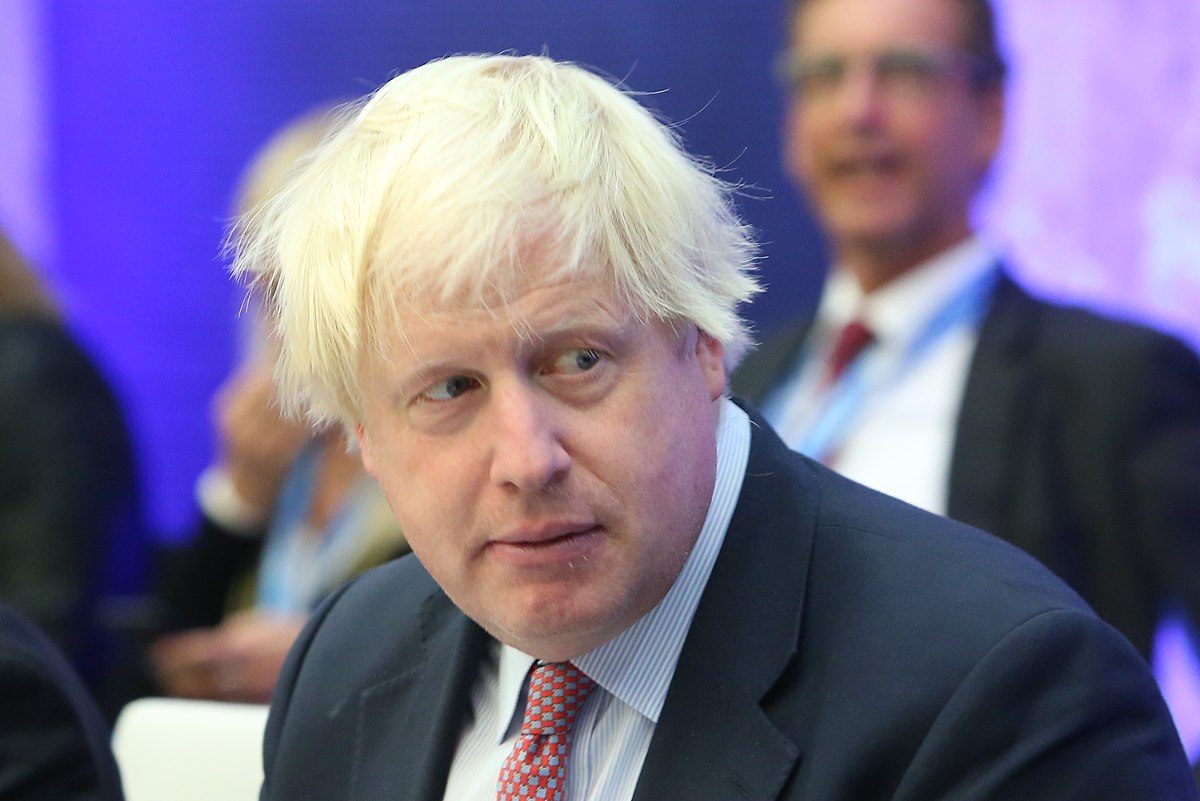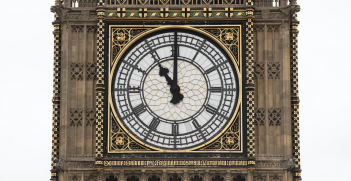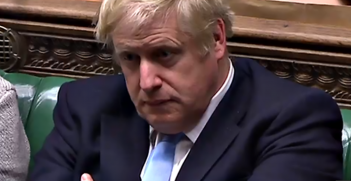Brexit: Will a General Election Change the Game?

Boris Johnson and his Conservative Party face three significant obstacles in their efforts to be re-elected, though none of these problems rule them out as potential victors.
The banner headline was explicit. “Parliament breaks deadlock with December 12 election.” However, the first paragraph in The Guardian’s lead story was characteristically contradictory. It stated that by voting for a pre-Christmas poll, MPs had set the stage for a contest “that could be the most unpredictable in a generation.” So much for breaking deadlock!
And unpredictable it certainly will be. Six weeks to go, and I will not hazard a guess as to who will end up in 10 Downing Street. This much-forecasted election is perhaps Boris Johnson’s to lose, and he is well-capable of losing it.
Though claiming he did not want to face the voters until after he had delivered Britain’s exit from the European Union, Boris Johnson spent most of October demanding a poll. Then, just a couple of hours after his wish was granted, he confessed to a meeting of the influential 1922 Committee of backbench Tory MPs that he feared the outcome could go against him.
This momentary break in Johnson’s chutzpah may be the result of his failure to deliver on his noisy promise that he would get the United Kingdom out of the EU on 31 October, “do or die.” He declared that he would rather “die in a ditch” than carry out Parliament’s requirement to extend British membership until 31 January. Begrudgingly, he did seek an extension (at the same time trying unsuccessfully to persuade Brussels not to grant it) and is not dead in a ditch, but alive and kicking. He is set to embark on his favourite pastime, stomping up and down the country, making extravagant and exaggerated promises he is unlikely to keep. Who knows, the infamous red Boris bus, whose wild, disingenuous and dishonest slogans did so much to win the 2016 referendum for the Brexiteers, may make another appearance.
There is no doubt that Boris is a formidable, populist campaigner, loved by the xenophobic tabloids and the right-wing Daily Telegraph. But this election campaign has many complexities, presenting multiple obstacles for both the Conservative government and opposition parties. Only the Scottish Nationalists can be reasonably sure of building on their already dominant position in the UK’s second largest country.
The most serious obstacle for Johnson is seeing off Nigel Farage and his Brexit party. On the weekend the ebullient Farage sought a “leave alliance” with the Tories. He pledged his party would (improbably) field candidates in all 650 seats in the House of Commons if Johnson did not agree to tear up the Brexit deal he negotiated with the EU just two weeks ago, and instead support a “no-deal pure Brexit” with a total break from the bloc. Only then, said Farage, would he agree to a pact with the Tories whereby each party would fight in the constituencies they are most likely to win.
Johnson has rejected this plan, provoking a torrent of angry rhetoric from Farage, claiming the PM’s deal is not Brexit at all, but a “con trick.” Some Tories think Johnson made the wrong call, as well as US President Donald Trump, who just happened to call into Farage’s phone in radio show to tell him, “I think you and Boris would make a great team.”
The second obstacle for Johnson is that unlike his predecessor, Theresa May, who called an election with the aim of increasing an already healthy Tory majority (only to lose it), Johnson’s Conservatives come from behind. The outgoing Government is a minority one.
The Conservatives will lose seats in Scotland, which strongly prefers to remain in the EU, and where Ruth Davidson, a popular leader of the Scottish Conservatives, resigned after reported disagreements with Johnson. In London, a number of Tory seats are vulnerable, while in the West Country and East Anglia the Liberal Democrats, under new leader Jo Swinson, expect to gain ground lost in previous elections.
How will the Tories make up for potential losses, and win enough seats to get them back with an overall majority? Party strategists seem to think there are many gains to be had in traditional Labour heartlands, especially in the Midlands and Northern England where significant majorities voted “leave” in the 2016 referendum.
The third obstacle for the Conservatives is the demography of the voters. The last three years has seen the addition of large numbers of 18 and 19-year-olds to the electoral rolls, and the loss of older voters. Indications are that younger people are pro-European climate change activists and likely to favour the Liberal Democrats. The Liberal Democrats, Greens and the Scottish Nationals are the only parties committed to revoking Brexit.
But it is not that simple. There are people who crave a hard Brexit and those who despise it across both the major parties. It is just that in the Conservative party, the ultra-right and the so-called European Research Group have seized control, while in the Labour Party, leader Jeremy Corbyn walked a tightrope that appears to please no one.
As the BBC’s highest-paid presenter Garry Linekar put it: the British have become tribal, like football teams, irrespective of class or other interests. “Just as Arsenal fans hate Tottenham’s, and vice-versa, so there are two tribes, Brexiteers and Remainers.” But there is now a third tribe– the millions of people who are sick and tired of the Brexit debate, and who repeat on social media, radio and television vox-pops the Johnson mantra “just get it done.’ It must be said that many of these people have little interest in the debate or a real understanding of the issues.
It is a fair bet that many of this ‘third tribe” will vote for Boris, but as suggested earlier, the risk for him is that many could opt for Farage, or not vote at all, being “sick of politics (a phrase overheard in the dentist’s waiting room last week).” Or, more likely, they will focus on other issues, such as the National Health Service, aged care, falling education standards, high university fees, housing shortages and prices, and mismanagement of reforms to the complicated welfare system. On each of these issues Labour and the Liberal Democrats appear to be making the running. Labour’s hard-left Jeremy Corbyn is not to everyone’s taste, but he proved in 2017 to be a doughty fighter.
The other looming problem for Johnson, who set out a big spending programme in the Queen’s Speech earlier in October, is his government’s economic management. He must be thankful that the Chancellor no longer has to present a budget next week in the traditional Autumn Statement. This would have shown a sharp deterioration in Government finances, and a lurch back into deficit.
The healthy surplus built up by Phillip Hammond, arguably Theresa May’s most competent minister, has been squandered within weeks by the Johnson administration. Some of the expenditure was allocated to preparing for a “no-deal” Brexit that could and should have been avoided. The Tories’ reputation for sound financial management has been trashed. Watch out for this month’s publication of worrying revelations by the independent Office for Budget Responsibility.
None of this means that Johnson cannot win the election. He will make attractive if unfounded promises; and he will win debates. He will tweet in the most vigorous Trumpian style. All forms of media will be showered with sharp videos. The sunlit uplands and Britain’s “glorious future” will trip off Boris’s tongue. The Conservative Party machine has been preparing for the election campaign since the summer and is well-funded.
Johnson has appointed as his campaign director an Australian protegee of Lynton Crosby, Isaac Levido, who nursed Scott Morrison to success in Canberra against all predictions. He will be strongly supported by the same two young New Zealanders that ran the Coalition’s multimedia campaign. How well will Levido’s team get on with Johnson’s tough chief-of-staff, Dominic Cummings? We shall have to wait for the answer to that question, but remember, it was sharp clashes between Theresa May’s chiefs of staff and Crosby that partly contributed to her downfall.
Colin Chapman is a writer, broadcaster and public speaker, who specialises in geopolitics, international economics, and global media issues. He is a former president of AIIA NSW and was appointed a fellow of the AIIA in 2017.
This article is published under a Creative Commons Licence and may be republished with attribution.





